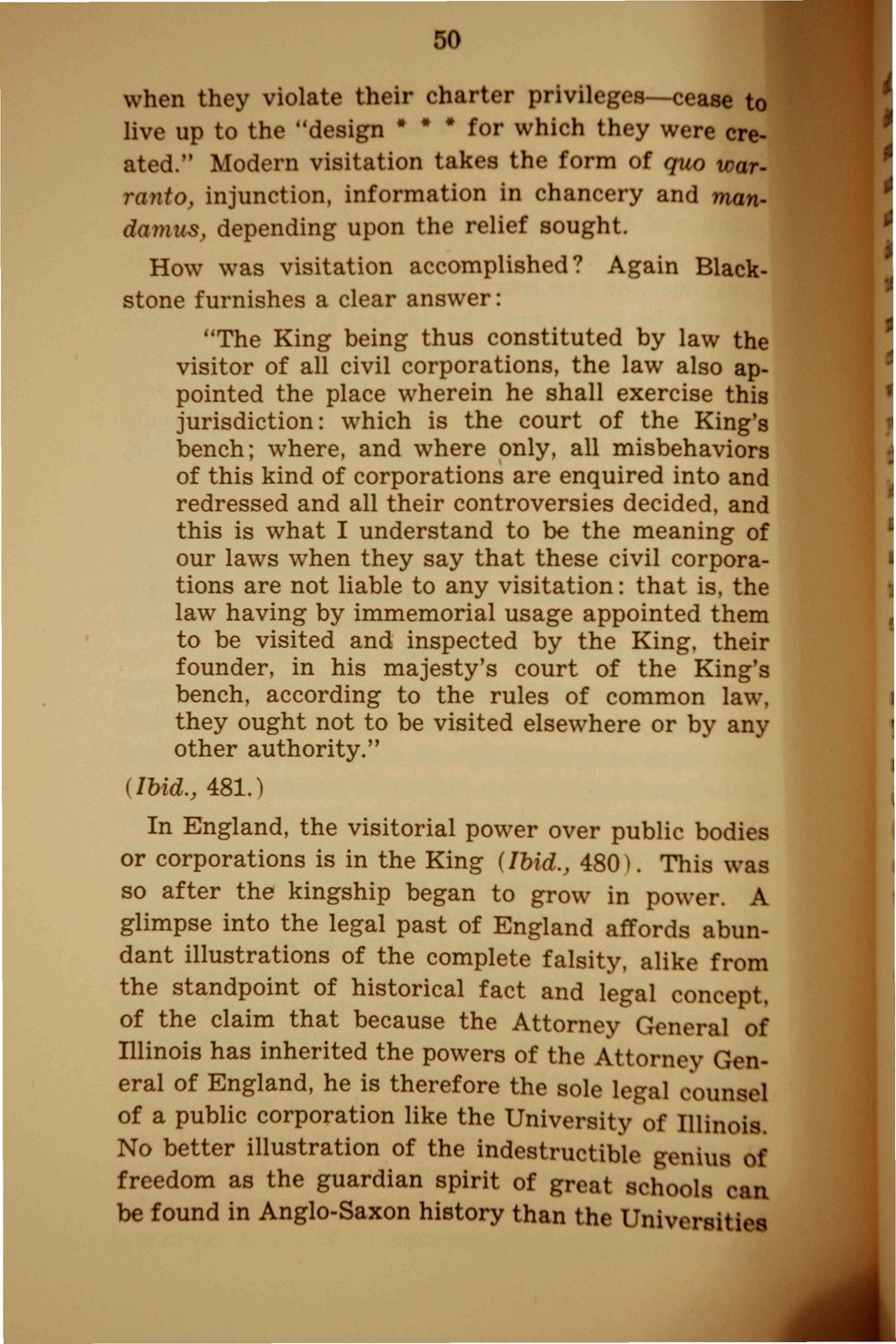| |
| |
Caption: Booklet - UI Charter of Freedom (1942)
This is a reduced-resolution page image for fast online browsing.

EXTRACTED TEXT FROM PAGE:
50 es—cease live up to the "design * * * for which they were crequo ated." man damns, depending upon the relief sought. How was visitation accomplished? Again Blackstone furnishes a clear answer: "The King being thus constituted by law the visitor of all civil corporations, the law also appointed the place wherein he shall exercise this jurisdiction: which is the court of the King's bench; where, and where only, all misbehaviors of this kind of corporations are enquired into and redressed and all their controversies decided, and this is what I understand to be the meaning of our laws when they say that these civil corporations are not liable to any visitation: that is, the law having by immemorial usage appointed them to be visited and inspected by the King, their founder, in his majesty's court of the King's bench, according to the rules of common law. they ought not to be visited elsewhere or by any other authority." (Ibid., 481.) In England, the visitorial power over public bodies or corporations is in the King [Ibid., 480). This was so after the kingship began to grow in power. A impse complete falsity, alike from the standpoint of historical fact and legal concept of the claim that because the Attorney General of Illinois has inherited the powers of the Attorney General of England, he is therefore the sole legal imsel of a public corporation like the University of Illinois. No freedom as the guardian spirit of great schools can be found in Anglo-Saxon history than the Univprniti^a
| |